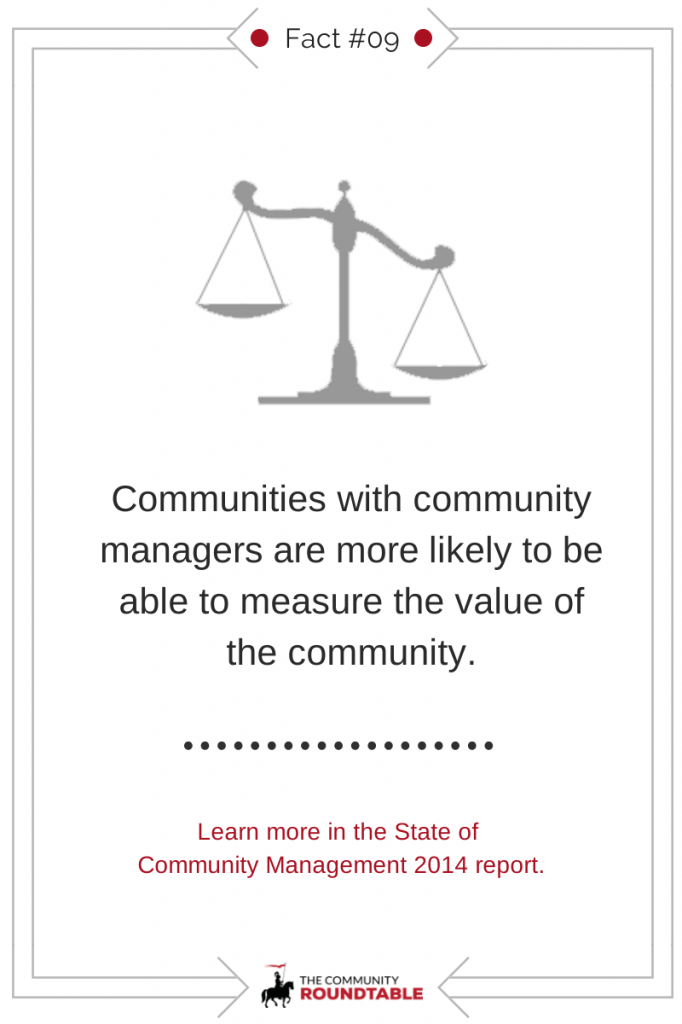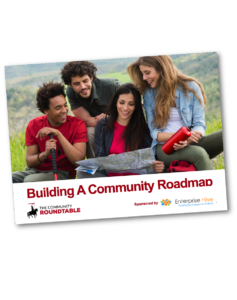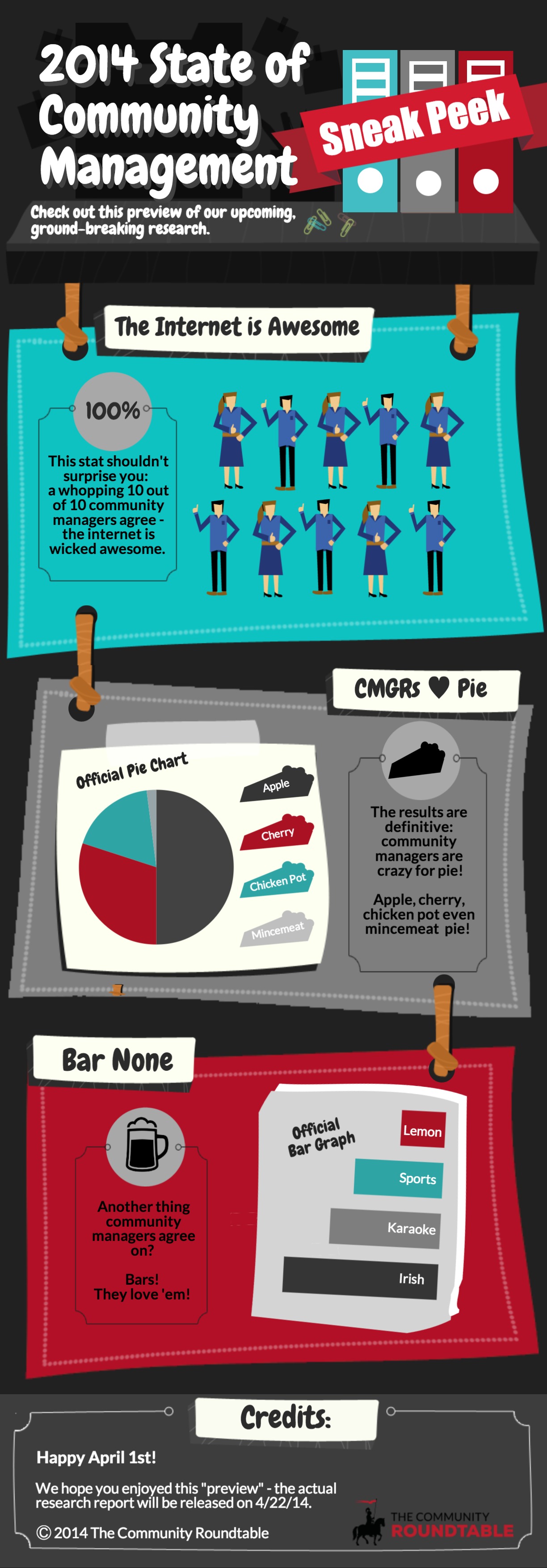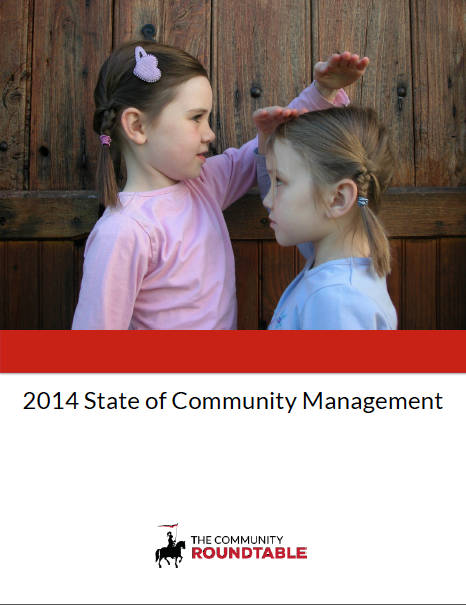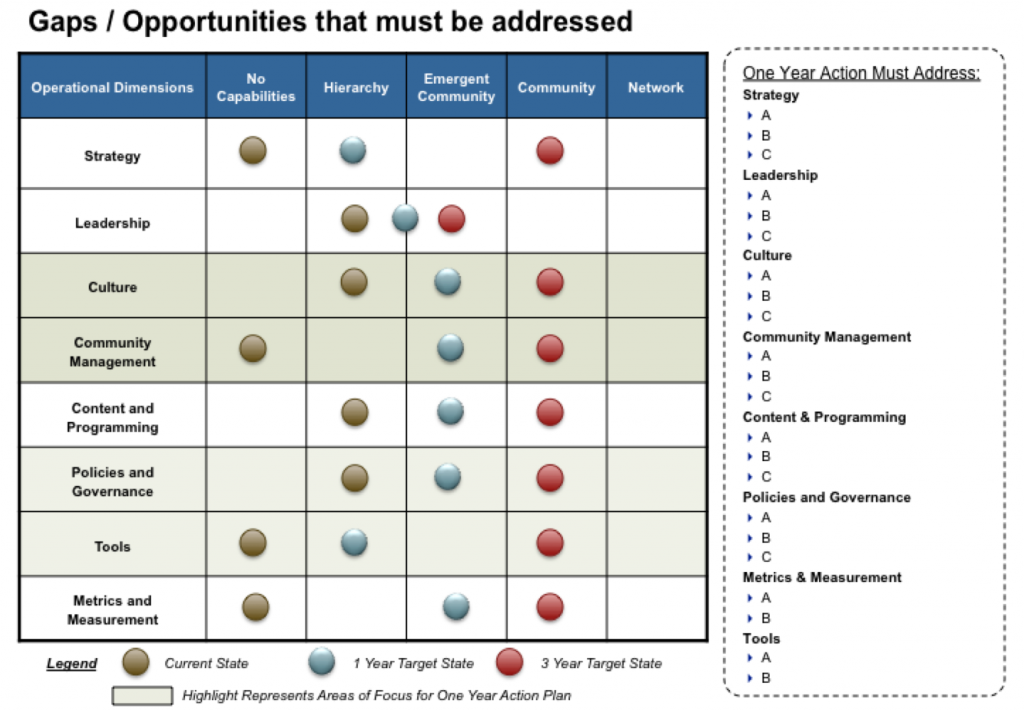By Ted McEnroe, The Community Roundtable
In case you haven’t heard – Monday, January 26 is Community Manager Appreciation Day. We’ve talked a lot about our CMAD events in Boston, New York, Atlanta, Milwaukee and Washington, DC, and if you still want to get in before the tickets are all gone, you should probably click on this link to claim one. (It will open in a new window. We’ll wait.)
Having done that, you should know that there is a lot more to CMAD than just T-shirts, balloons, stickers and food and drink. There is the annual 24-hour Hangout, which includes an hour hosted by our own Hillary Boucher, who will be joined by TheCR Network members Patrick Hellen, Kirsten Laaspere and Melissa Potvin, as well as yours truly, to discuss The Power of Programs to Drive Engagement in Your Community. It’s a topic Hillary and I have discussed with each other on a number of occasions, and it is the focus of her section of The Community Manager Handbook: 20 Lessons from Community Superheroes, which comes out in another week (although we will have excerpts at our CMAD events.) Content and programs are like the fuel and air mixture in a car engine – without the right mix, you just won’t get going.
We have a lot of other CMAD elements to mention – the launch of this year’s State of Community Management research, the release of the Handbook – but we’ll get to those Monday.
Our other major element of the week was a bit of a headache – we had some major website issues that basically drove us to a new host by Wednesday night – so you may have missed a couple of other posts. I followed up on Rachel’s CMSWire article, Customer Communities: Strategy or Tactic, with a more personal account one here about one industry that seems not fully ready to understand in this day and age that the relationship now comes before the transaction – and how that affects how you treat customers.
And Shannon provided another piece of research from the Community Manager Salary Survey, which reminds us that another important set of relationships – your professional ones – are far more valuable than your ability to find and respond to ads if you’re seeking that next Community Manager job.
Now on to some other great reading.
Some Other Interesting Readings This Week
Why Online Community Managers Don’t Get the Respect They Deserve (And What You Can Do About It) – It is important to point out that no one is denying the enormous impact having a community manager in place has on creating healthy and growing online communities. In their annual report on, “The State of Community Management,” The Community Roundtable found that having a dedicated community manager clearly led to higher community maturity. So, in an age when community managers are growing in demand, how can you prove your value? The answer is rooted in understanding that online communities must serve a bigger purpose for a company than simply bringing people together.
Can Forum Communities Compete with Facebook and Twitter? – In the heyday of ‘online discussion boards’ – when you really could just build it and they would come – the humble forum stood unchallenged when it came to social networking. Then suddenly, along came a whole new concept in online networking led by Facebook, the new kid on the block that everyone wanted to be friends with.
The Never Ending Quest to Dethrone Email – Build a better mousetrap, as the cliché has it, and the world will beat a path to your door. That line of thinking has even been applied to the most rudimentary corners of the technology world: standards and protocols that have stuck around for decades, yet viewed as creaky and badly in need of replacement. But few old-guard standards have seen as many pretenders to the throne as the SMTP/POP3/IMAP email triumvirate has. If only someone could come up with an alternative that did everything email did but better, more securely, and with less hassle, wouldn’t it be worth it?
New Community and Social Media Jobs
Community Management Fellow (Paid) – The Community Roundtable, remote
Research Fellow (Paid) – The Community Roundtable, remote
Sales/Marketing Fellow (Paid) – The Community Roundtable, remote
Director of Content Strategy – Electronic Arts, Redwood City, CA
Digital Community Manager – Collabera, New York, NY
Community Manager – Sysomos, San Jose, CA
Communications Officer, Community Management – Bill and Melinda Gates Foundation, Seattle, WA
Community Manager – Kabbage, Atlanta, GA
Startup Community Manager – MassChallenge, Boston, MA
Community Manager – BSC Solutions, Neenah, WI
Community Manager – BMW Impact Ventures, Woodcliff Lake, NJ
B2C Social Media Content Manager – Move, Inc., San Jose, CA
Community Manager and Marketing – SeeClickFix, New Haven, CT
Communications and Community Manager – Children of Domestic Violence, New York, NY
